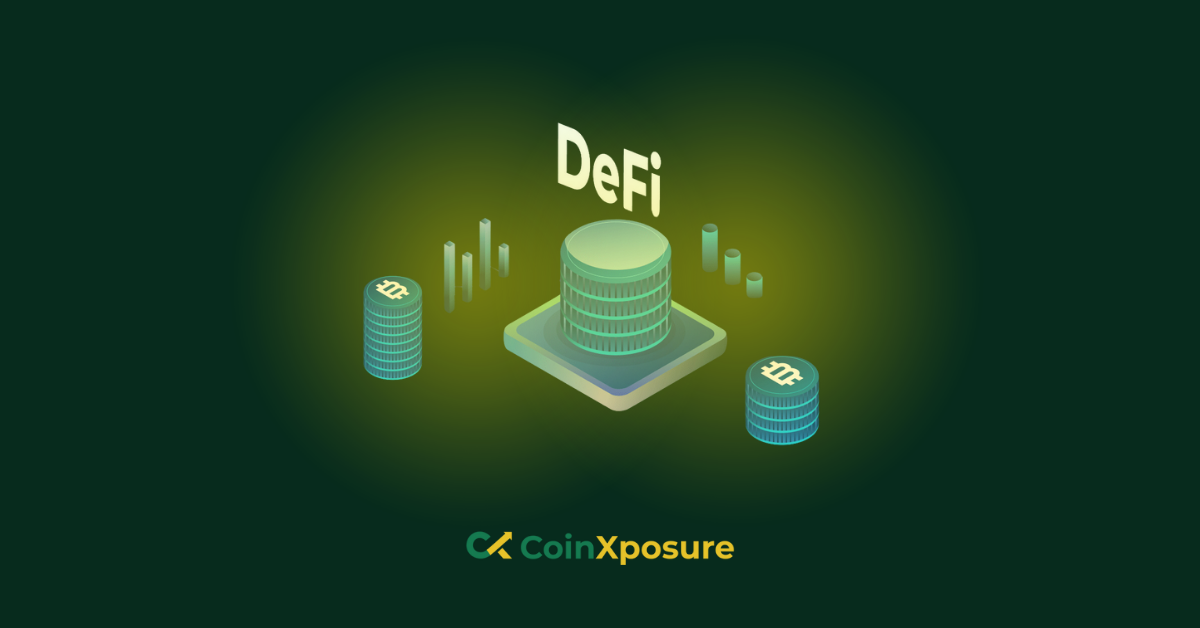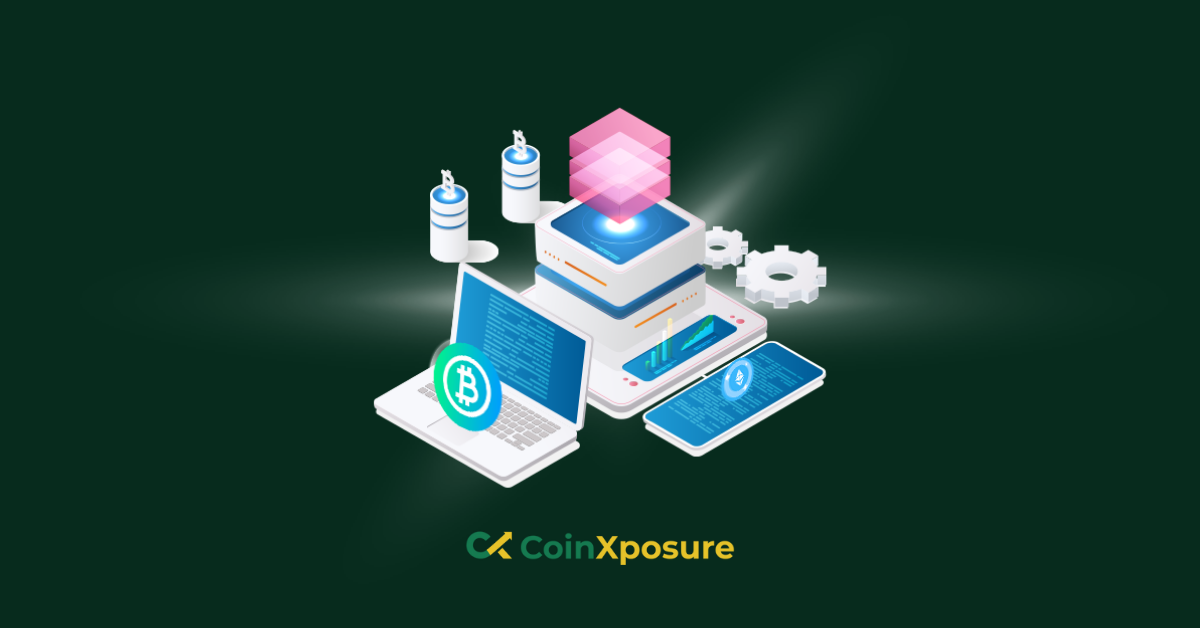Building a thriving community around decentralized ecosystems is not just a goal; it’s a necessity. In the world of blockchain, cryptocurrency, and decentralized applications (DApps), communities play a pivotal role in shaping the success of projects.
These communities comprise developers, investors, enthusiasts, and users who share a common interest in the decentralization revolution. In this guide, we will explore essential strategies to foster and nurture these communities, ultimately contributing to the growth and sustainability of decentralized ecosystems.
From understanding the fundamentals of decentralization to leveraging social media, hosting events, and measuring success, we’ll delve into the key steps to build a vibrant and engaged community in the ever-evolving landscape of decentralized technologies.
Understanding Decentralized Ecosystems
Decentralized ecosystems represent a paradigm shift in organizing and interacting within digital spaces. At their core, these ecosystems are built upon the principles of decentralization, which contrast with traditional centralized systems. Here’s a breakdown of key concepts to comprehend decentralized ecosystems:
- Decentralization
- Blockchain Technology
- Smart Contracts
- Cryptocurrencies
- Distributed Applications (DApps)
- Node Consensus
- Immutable Records
- Open Source Development
- Challenges
Decentralization
Decentralization refers to the distribution of authority, control, and data across a network of nodes or participants instead of relying on a central authority or intermediary. In a decentralized ecosystem, no single entity has complete control.
Blockchain Technology
Many decentralized ecosystems rely on blockchain technology as their foundation. Blockchains are distributed ledgers that record transactions across a network of computers. They offer transparency, immutability, and security.
Smart Contracts
Smart contracts are self-executing contracts with predefined rules and conditions. They automate processes and enable trustless interactions, eliminating the need for intermediaries.
Cryptocurrencies
Digital currencies like Bitcoin and Ethereum are often integral to decentralized ecosystems. They facilitate value transfer and incentivize network participants.
Distributed Applications (DApps)
DApps are decentralized applications that run on blockchain networks. They operate without a central server, making them resistant to censorship and downtime.
Node Consensus
Decentralized ecosystems rely on consensus algorithms to validate transactions and maintain the integrity of the network. Common consensus mechanisms include Proof of Work (PoW) and Proof of Stake (PoS).
Immutable Records
Data on a blockchain is typically immutable, meaning it cannot be altered or deleted. This immutability contributes to transparency and trust within the ecosystem.
Interoperability
Some decentralized ecosystems aim to connect with other blockchains and systems to enable cross-chain interactions and data sharing.
Open Source Development
Many decentralized projects are open source, allowing anyone to contribute. This fosters a collaborative and community-driven ethos.
Challenges
Decentralized ecosystems face scalability, user adoption, and regulatory compliance challenges. Overcoming these hurdles is crucial for their long-term success.
Understanding these foundational aspects of decentralized ecosystems is essential for navigating this rapidly evolving landscape and participating in the transformative potential of decentralized technologies.
Importance of Community Building in Decentralized Ecosystems
Community building in decentralized ecosystems holds paramount importance for several compelling reasons:
- Fostering Adoption
- Network Effect
- Support and Education
- Innovation and Development
- Decentralization’s Ideals
- Feedback and Improvement
Fostering Adoption
A strong and engaged community can drive user adoption of decentralized technologies. Community members often serve as advocates, educating others and demonstrating the practical benefits of decentralized applications and cryptocurrencies.
Network Effect
Decentralized ecosystems benefit from network effects, where the value of the ecosystem increases as more users and participants join. A vibrant community attracts new users and developers, enhancing the overall utility and attractiveness of the ecosystem.
Support and Education
Decentralized technologies can be complex, and users may encounter challenges. A dedicated community provides valuable support, guidance, and educational resources, making it easier for newcomers to understand and use the technology effectively.
Innovation and Development
Communities contribute to the innovation and development of decentralized projects. Enthusiastic developers often create new decentralized applications (DApps) and improve existing ones, expanding the ecosystem’s capabilities.
Decentralization’s Ideals
Principles of decentralization, transparency, and inclusivity often drive decentralized ecosystems. Building a community that embodies these ideals reinforces the ecosystem’s core values.
Feedback and Improvement
Community feedback is invaluable for project teams. Users and developers can provide insights, identify issues, and suggest improvements, leading to the continuous refinement of decentralized platforms.
Community building is not merely a marketing strategy for decentralized ecosystems; it is the lifeblood that sustains and propels these transformative technologies.
A thriving community reinforces the principles of decentralization, drives growth and innovation, and ultimately empowers individuals to participate in a more inclusive and equitable digital future.
Strategies for Building a Community Around Decentralized Ecosystems
Building a vibrant community around decentralized ecosystems requires a thoughtful and multifaceted approach. Here are some effective strategies to achieve this:
- Education and Awareness
- Social Media Engagement
- Community Governance
- Events and Meetups
- Incentive Programs
- Developer Engagement
- Ambassador Programs
- Transparency and Communication
Education and Awareness
-
- Provide comprehensive educational resources, including articles, videos, and tutorials, to help newcomers understand the technology and its benefits.
- Host webinars, workshops, and online courses to promote decentralized ecosystem knowledge.
Social Media Engagement
-
- Actively participate in relevant social media platforms like Twitter, Reddit, and Discord.
- Share regular updates, news, and community achievements.
- Foster discussions and engage with community members to build relationships.
Community Governance
-
- Implement decentralized governance models (e.g., DAOs) that give community members a say in decision-making.
- Hold regular voting and proposal discussions to involve the community in shaping the ecosystem’s future.
Events and Meetups
-
- Organize virtual or in-person events, conferences, and meetups to facilitate networking and knowledge sharing.
- Feature guest speakers, panel discussions, and hands-on workshops.
Incentive Programs
-
- Create token-based reward systems or loyalty programs to incentivize community participation and contributions.
- Recognize and reward active community members, such as moderators and content creators.
Developer Engagement
-
- Encourage developers to build and contribute to the ecosystem by providing developer grants, hackathons, and developer-focused resources.
- Maintain open channels for developer communication and support.
Ambassador Programs
-
- Recruit community ambassadors or advocates who can represent the ecosystem in different regions or language communities.
- Empower ambassadors with resources and support to expand the ecosystem’s reach.
Transparency and Communication
-
- Keep the community informed with regular updates on project developments, partnerships, and roadmaps.
- Be transparent about challenges and how they are being addressed.
Remember that community building is an ongoing process that requires adaptability and responsiveness to the changing needs and dynamics of the decentralized ecosystem. Building trust and fostering a sense of belonging among community members are central to its success.
Future of Building a Community Around Decentralized Ecosystem
The future of building a community around decentralized ecosystems is likely to evolve in several key directions:
- Increased Integration of Web3
- Decentralized Autonomous Communities (DACs)
- Interoperability
- Incentive Mechanisms
- Gamification
- Decentralized Identity
- AI and Automation
- Community-Driven Development
Increased Integration of Web3
Web3, the next-generation internet built on decentralized technologies, will play a central role in the future of community building. Communities will leverage Web3 features like decentralized identity, decentralized finance (DeFi) tools, and NFTs to enhance user experiences and incentivize participation.
Decentralized Autonomous Communities (DACs)
The concept of DAOs (Decentralized Autonomous Organizations) will extend to decentralized communities, allowing for more transparent and democratic decision-making. DACs will empower community members to govern, fund, and steer the direction of projects.
Interoperability
As various blockchains and decentralized ecosystems continue to emerge, interoperability will become crucial. Communities will seek to connect and collaborate across different ecosystems, enabling seamless cross-chain interactions and sharing of resources.
Incentive Mechanisms
More sophisticated incentive mechanisms, including tokenomics, governance tokens, and yield farming, will be designed to attract and retain community members. These incentives will align with community values and goals.
Gamification
Gamification elements will be integrated to enhance engagement. Decentralized ecosystems will use game-like features like achievements, badges, and leaderboards to motivate users and reward active participation.
Decentralized Identity
Decentralized identity solutions will strengthen community security and privacy. Users will have control over their digital identities and data, enhancing trust within the community.
AI and Automation
AI-powered chatbots and automation will provide instant support and streamline community management tasks. These technologies will help manage large and diverse communities effectively.
Community-Driven Development
Communities will take on a more active role in the development process. They may collectively fund, propose, and vote on new features and improvements, shaping the roadmap of decentralized projects.
The future of building communities around decentralized ecosystems is dynamic and full of opportunities. These communities will continue to drive innovation, inclusivity, and user empowerment as they adapt to the evolving landscape of decentralized technologies.
Conclusion
The strategies for building and nurturing communities around decentralized ecosystems are instrumental in realizing the full potential of these transformative technologies.
As we look ahead to the future, the importance of community building remains undeniable. Decentralized ecosystems rely on engaged and passionate communities to drive adoption, foster innovation, and uphold the principles of decentralization.
The future of community building in decentralized ecosystems promises to be dynamic and ever-evolving. It will be shaped by integrating Web3 technologies, the rise of Decentralized Autonomous Communities (DACs), increased interoperability, advanced incentive mechanisms, and engagement gamification.
Decentralized identity, AI-driven support, and global reach will create inclusive and resilient communities.
However, this future has challenges, including regulatory complexities and sustainability concerns. Building and sustaining communities will require adaptability, transparency, and a commitment to the core values of decentralization.
In this evolving landscape, one thing remains constant: the essential role of community building in driving the decentralization revolution forward.
Strong, active, and well-supported communities will continue to drive the growth, innovation, and long-term success of decentralized ecosystems. As we navigate this exciting journey into the future, it is clear that decentralized communities will remain at the forefront of change, empowerment, and technological progress.












